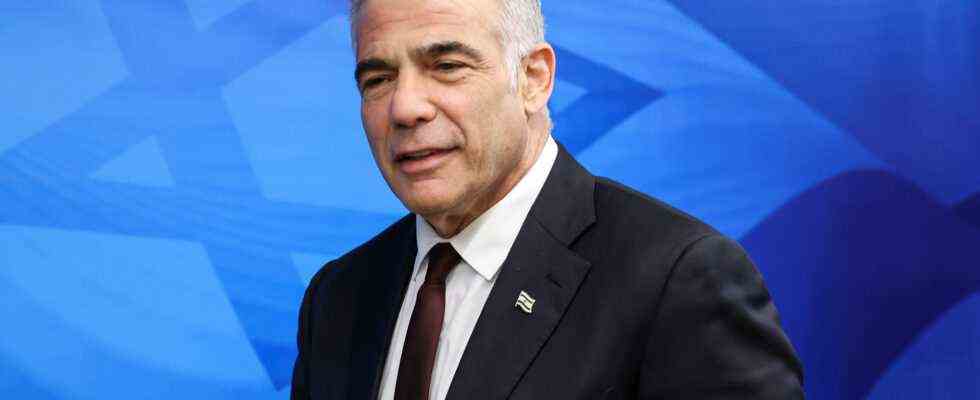As of: 06/29/2021 4:38 a.m.
Yair Lapid is the first Israeli foreign minister to travel to the United Arab Emirates. The visit, which is praised as historical, is primarily symbolic. However, both countries want to deepen their cooperation.
From Tim Assmann,
ARD studio Tel Aviv
When Israel and the United Arab Emirates announced the normalization of their relations last year and finally signed an agreement to that effect, it was a diplomatic sensation that was carefully staged, especially in Jerusalem and Washington. Benjamin Netanyahu, then Israel’s Prime Minister, and Donald Trump, then US President, left no doubt: Without them, the message said, this agreement would not have existed. Trump boasted as a mediator of the so-called Abraham Treaties between Israel and several Arab states – and Netanyahu celebrated himself at home as a successful foreign politician who had achieved something historic. He used the agreement primarily as a PR coup.
Netanyahu had negotiated with the Emirates without involving his own foreign ministry, which was headed by the coalition partner at the time. The then Foreign Minister Gabi Ashkenazi was left out and was also not allowed to travel to the UAE. The campaigner Netanyahu wanted to make this first high-profile visit himself. But the trip had to be canceled several times for various reasons – most recently in March because Jordan briefly refused overflight rights. Under the new Israeli government, the tasks are now apparently differently distributed, and the newly-appointed Yair Lapid is traveling to the Gulf as foreign minister.
Travel and shopping
During his two-day visit, Lapid will officially inaugurate the Israeli embassy in Abu Dhabi and a consulate general in Dubai. The opening of the embassy was formally announced in January. The Emirates have had an ambassador in Israel since March – but not in Jerusalem, which Israel claims as the capital. Both countries have also signed various individual agreements on greater cooperation, including an agreement on visa-free travel. Overall, the normalization of relationships is still in the early stages.
For most Israelis, the rapprochement with the Emirates has so far mainly represented vacation and shopping. Shortly after direct flights were established between the two countries last year, many Israelis flew to the Gulf. Tens of thousands have now made use of the new freedom of travel. Last December, pictures of Israeli vacationers went around the world celebrating in the Emirates and often not taking Corona rules very seriously. Israeli companies hope for good business with the Gulf state. After the end of the diplomatic ice age, there are now new markets for Israel’s booming high-tech industry.
An advertising stand for Israel at a travel fair in Dubai (picture from May 16, 2021).
Image: picture alliance / ASSOCIATED PR
Common security interests
Lapid also wants to hold political talks during his visit. Among other things, it should be about the role of Iran in the region and the possible re-entry of the USA into the nuclear agreement with Tehran. The government in Jerusalem and the leadership of the United Arab Emirates are following this development with concern. They are united by the desire to curb Iran’s influence in the region. Both countries also see the danger of a military escalation.
Last year Israel renounced a veto against a billion dollar arms deal between the US and the UAE. Part of the business is also the supply of state-of-the-art F-35 fighter aircraft. Trump approved the deal and Israel’s then Prime Minister Netanyahu did not publicly protest – he was criticized in Israel for this. The delivery of the fighter jets to the Emirates endangers Israel’s military superiority in the region, experts warned. The new US administration under President Joe Biden temporarily put the arms deal on hold, but has since given the go-ahead. Lapid’s visit to the Emirates will not overshadow the arms business.

